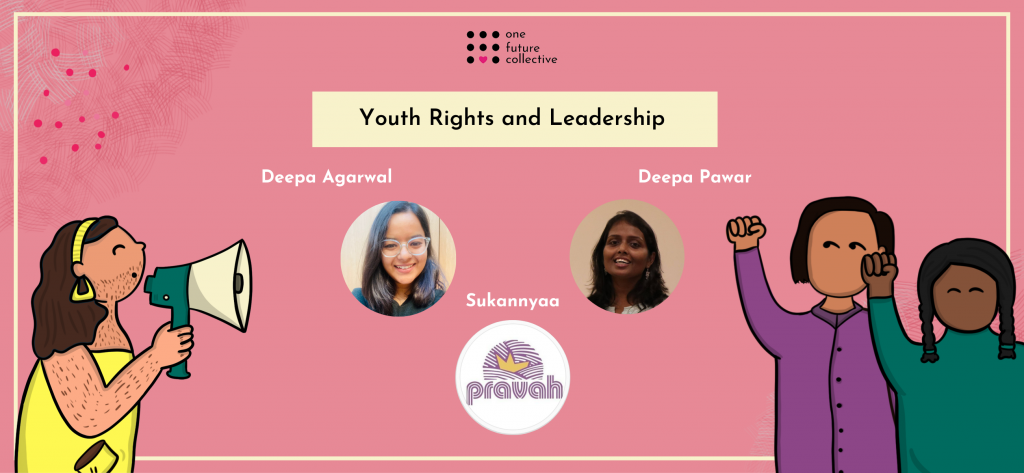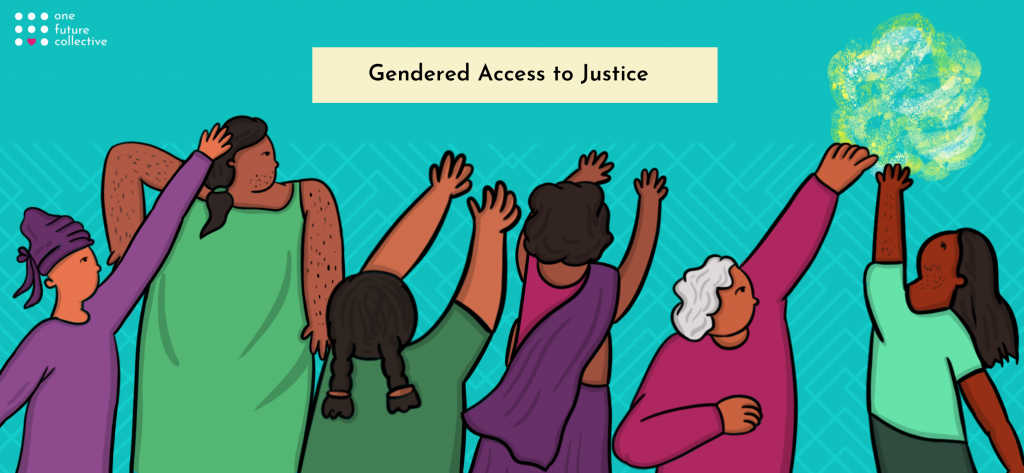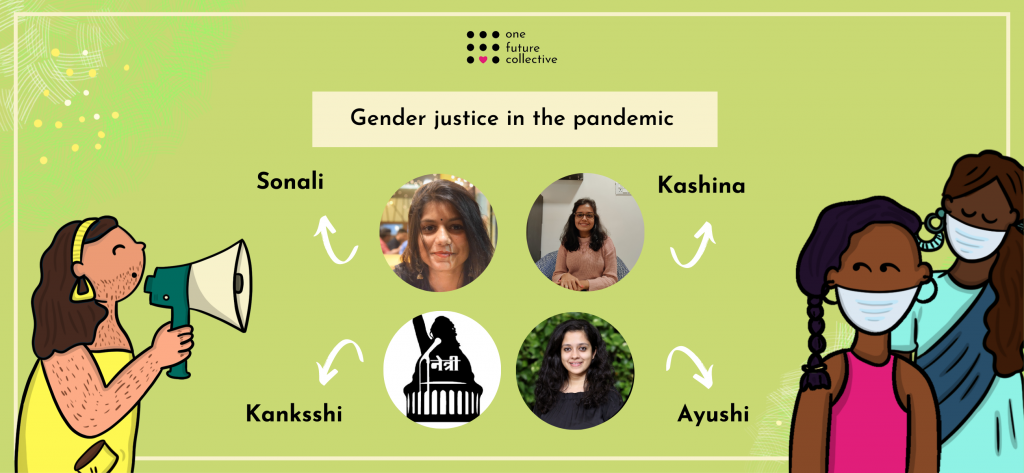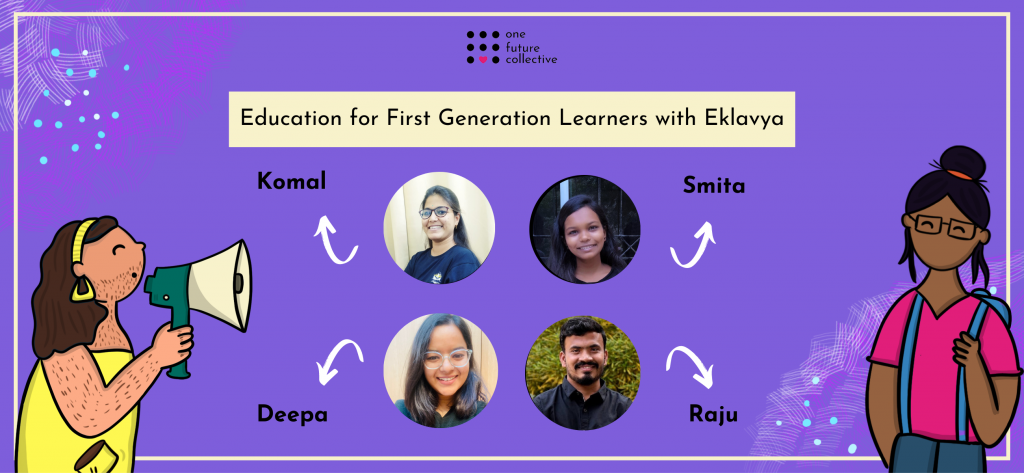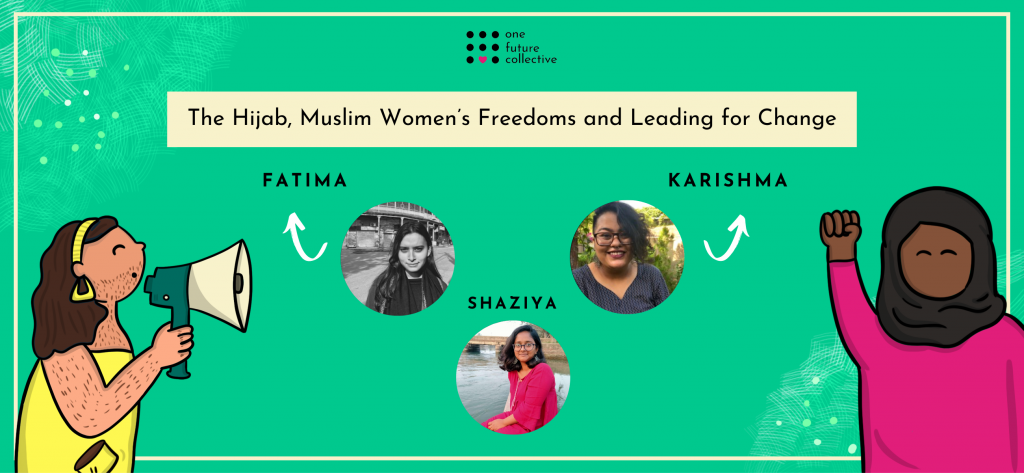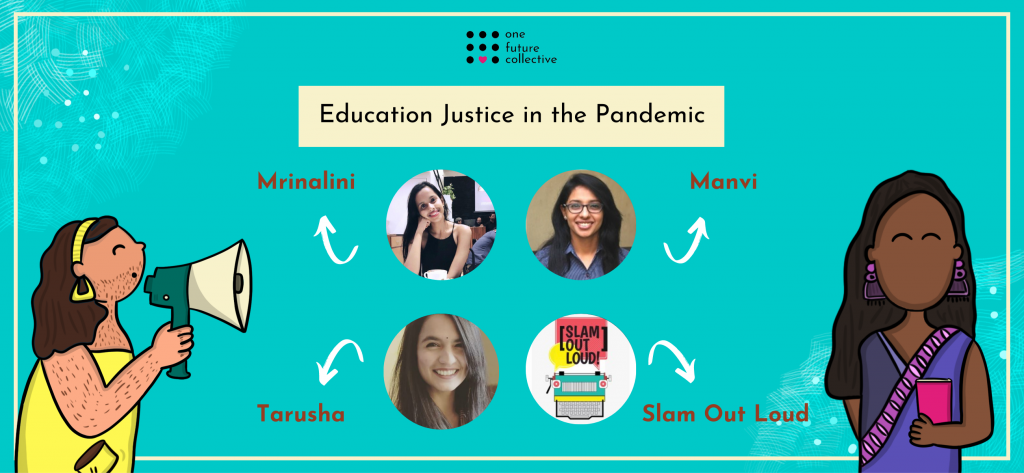
Youth Rights and Leadership
March 30, 2022On the 24th of February, we at One Future Collective hosted an IG Live on ‘Youth Rights and Leadership’. With…
Gendered Access To Justice
March 23, 2022On the 8th of March, we at One Future Collective hosted a zoom panel on ‘The gendered access to justice’.…
Mental Health and Work
March 19, 2022On 25th February 2022, One Future Collective hosted a live session on 'Mental Health and Work'; the session was moderated…
Gender Justice in the Pandemic
March 17, 2022On 22nd February 2022, One Future Collective hosted an IG Live on the theme of ‘Gender Justice in the Pandemic’…
Education for First Generation Learners with Eklavya
March 11, 2022On 20th February 2022, One Future Collective hosted an IG live on the theme “Education for First Generation Learners with…
The Hijab, Muslim Women’s Freedom and Leading for Change
March 9, 2022On 17th February 2022, One Future Collective hosted a live on the theme “The Hijab, Muslim Women’s Freedom and Leading…
Education Justice in the Pandemic
March 5, 2022On 15th February, One Future Collective hosted a live session on 'Education Justice in the Pandemic'. Mrinalini, an educator at…
Donate Now
Get Involved
